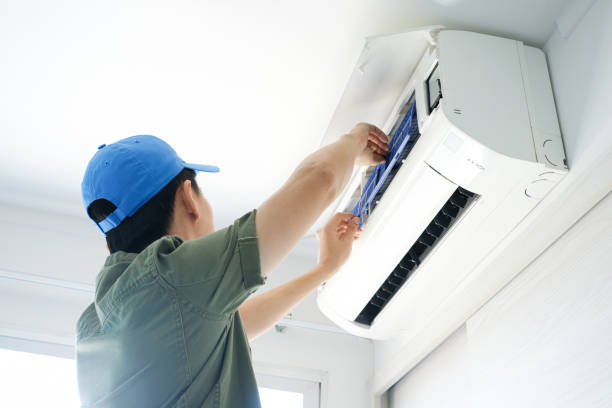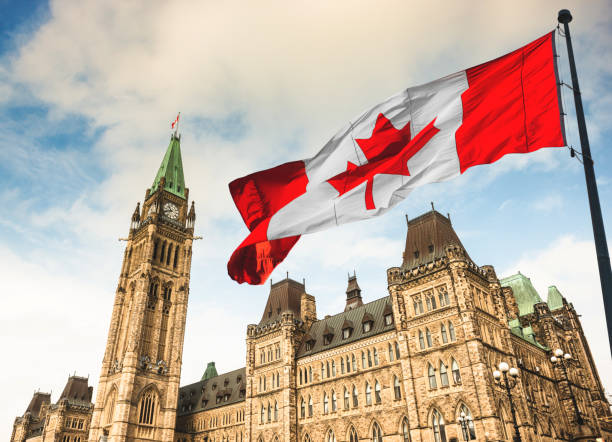Advertisements
Canada is a land of opportunities, and traveling to Canada as a skilled worker is one of the things that will position you strategically to make the most of your travel. AC repair technicians are in high demand in Canada, so many people have asked to know how much AC mechanics make in Canada and how do I become an HVAC technician in Canada. Keep reading to find out all more about opportunities available to you and how you can apply to increase your chances of approval.
Another interesting aspect of these job opportunities is that some of the agencies/companies provide air conditioning technician jobs in Canada with visa sponsorship, and you can also work at residential or industrial areas. This is to make it easier for interested applicants who have financial issues to get to Canada without hindrances.
See also: High Paying Factory Worker Jobs In Canada For Immigrants
10 highest paying AC repair jobs in Canada
We will start by listing the top 10 highest paid job positions for AC repair in Canada, and at the end of the list, we will share with you the job application links to follow.
1. HVAC Technician/Installer
HVAC technicians and installers are responsible for installing, maintaining, and repairing heating, ventilation, and air conditioning systems. They can earn competitive salaries, and their income may vary depending on their experience and location.
2. HVAC Supervisor
HVAC supervisors oversee a team of technicians and ensure that HVAC systems are installed and maintained correctly. They often earn higher salaries due to their leadership responsibilities.
3. Refrigeration Technician
Refrigeration technicians specialize in the repair and maintenance of refrigeration systems, including commercial and industrial refrigeration units. Skilled technicians in this field can earn substantial incomes.
Advertisements
4. Building Systems Technicians
These professionals are responsible for maintaining and repairing various systems within commercial and residential buildings, including HVAC systems. Their earnings can be significant, particularly in larger cities with high demand for skilled technicians.
5. HVAC Sales Representative
HVAC sales representatives sell HVAC equipment and services to businesses and homeowners. Their income can include both a base salary and commissions, potentially leading to higher earnings.
6. Facility Manager
Facility managers are responsible for overseeing the maintenance and repair of HVAC and other building systems within commercial and residential properties. Their salaries can vary widely based on the size and complexity of the facilities they manage.
7. Energy Efficiency Specialist
Specialists in energy efficiency focus on optimizing HVAC systems and other building systems to reduce energy consumption. They may work for government agencies, energy companies, or private organizations and can earn competitive salaries.
8. HVAC Project Manager
HVAC project managers oversee the planning and execution of HVAC installation and maintenance projects. Their responsibilities may include budget management and client communication, which can lead to higher compensation.
9. Industrial HVAC Technician
Technicians specializing in industrial HVAC systems, such as those used in factories and manufacturing facilities, often command higher salaries due to the specialized knowledge required for these environments.
10. Certified HVAC Inspector
Certified HVAC inspectors evaluate HVAC systems to ensure compliance with safety and efficiency standards. Their expertise can lead to well-paying positions in government agencies or private inspection firms.
What do HVAC technicians do?
On average, most HVAC technicians get paid $30–$50 per hour, and they’re commonly known for the following repair, installation, and maintenance services:
HVAC (Heating, Ventilation, and Air Conditioning) technicians, also known as HVACR (Heating, Ventilation, Air Conditioning, and Refrigeration) technicians, play a crucial role in ensuring the comfort, safety, and efficiency of buildings. Their work involves a wide range of tasks related to heating, cooling, ventilation, and refrigeration systems. Here are the primary responsibilities and duties of HVAC technicians:
- Installation: HVAC technicians install heating, air conditioning, and refrigeration systems in both residential and commercial buildings. This includes setting up the equipment, connecting ductwork, and ensuring proper ventilation.
- Maintenance: Regular maintenance is essential to keep HVAC systems operating efficiently. Technicians perform routine inspections, clean components, replace filters, and lubricate moving parts to prevent breakdowns and extend the lifespan of the equipment.
- Repairs: When HVAC systems malfunction or break down, technicians diagnose the problem and make necessary repairs. This may involve fixing or replacing faulty components, such as compressors, motors, thermostats, or refrigerant lines.
- Troubleshooting: HVAC technicians must troubleshoot complex systems to identify the root causes of issues. They use diagnostic tools and their knowledge of HVAC systems to find and address problems efficiently.
- Refrigerant Handling: HVAC technicians are trained to handle refrigerants safely and responsibly. They must follow environmental regulations when installing, servicing, or disposing of refrigerants.
- Energy Efficiency: Technicians often work to optimize HVAC systems for energy efficiency. This may involve adjusting settings, recommending upgrades, or installing programmable thermostats to reduce energy consumption.
- Customer Service: HVAC technicians interact with customers regularly. They explain the diagnosis of issues, provide estimates for repairs, and offer guidance on system maintenance and energy-saving practices.
- Documentation: Technicians maintain records of their work, including service reports, equipment specifications, and maintenance schedules. This documentation helps track system performance and ensure compliance with regulations.
- Compliance with Codes and Regulations: HVAC technicians must be knowledgeable about local and national building codes, environmental regulations, and safety standards. They ensure that HVAC systems meet these requirements.
- Continuous Learning: The HVAC industry is constantly evolving, with new technologies and systems emerging. Technicians must stay updated on industry trends, attend training programs, and obtain relevant certifications to maintain their expertise.
- Emergency Repairs: HVAC technicians may be called upon to perform emergency repairs, especially in extreme weather conditions when heating or cooling is essential for safety and comfort.
- Customization: In some cases, HVAC technicians may design custom HVAC systems to meet specific needs, such as specialized climate control in commercial facilities or data centers.
Helpful links
For detailed job descriptions, eligibility, free visas, and salary options, the following job boards are reliable if you want to apply now for HVAC jobs in Canada.
- https://ca.indeed.com/q-ac-mechanic-jobs.html
- https://www.glassdoor.ca/Job/canada-ac-technician-jobs-SRCH_IL.0,6_IN3_KO7,20.htm
- https://jooble.org/jobs-hvac/Canada
Conclusion
I hope you find our list of High-paying HVAC (Heating, Ventilation, and Air Conditioning) or AC repair job opportunities in Canada helpful in determining which job position is the best fit for you. However, how much you will be paid as an AC repairer in Canada depends on your experience, certifications, and the specific employer.
If you find this post helpful, do not hesitate to share it with your friends on social media.






